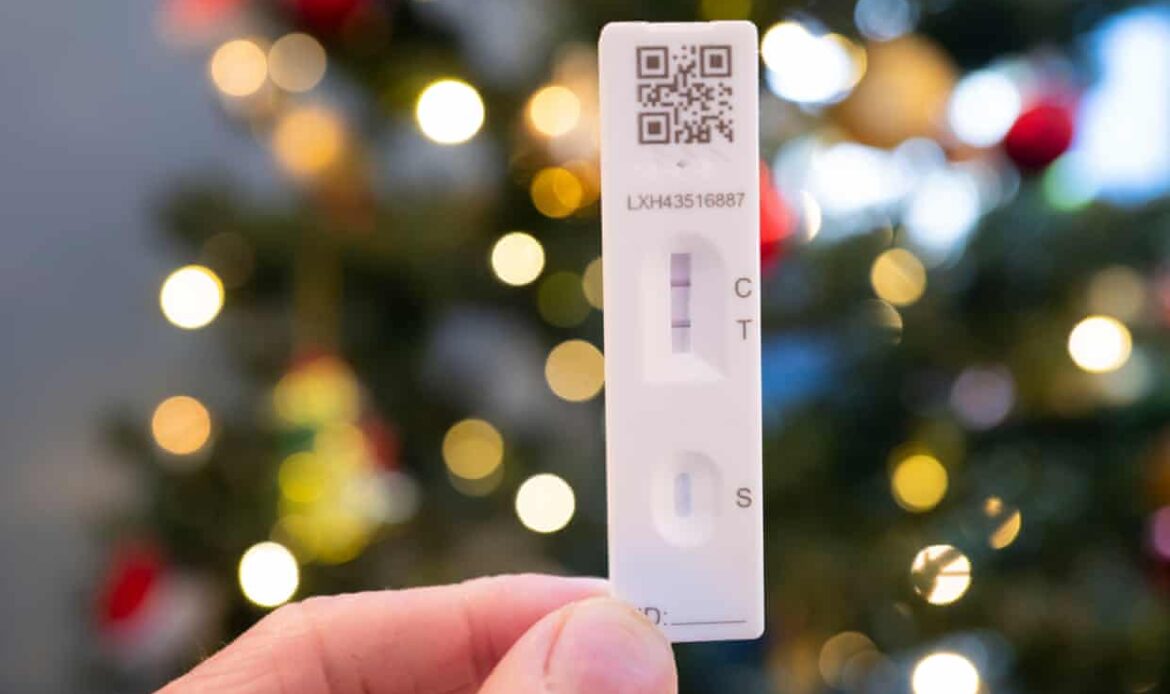
Whole households should cancel gatherings and visits to events if a single member tests positive for Covid, because others are probably infected too, according to government scientific advisers.
The highly transmissible Omicron variant spreads so fast that even if only one person in a house or a close-knit work team tests positive on a lateral flow device, there is a “significant chance that others are already infected”, the scientists warn.
Under current advice, close contacts who are double-jabbed do not have to self-isolate, but they are urged to take lateral flow tests for the next seven days.
The latest advice released on Saturday by the environmental modelling and behavioural science groups that feed in to the Scientific Advisory Group for Emergencies (Sage), suggests that policy needs strengthening to help reduce the spread of the new variant.
The document argues that Omicron spreads so quickly among close contacts, such as those sharing a house, that extra precaution is needed to prevent it from spreading more widely.
“If one person in a close-knit group, for example [a] household [or] work team, tests positive, there is a significant chance that others are already infected,” the scientists write. “If one person from a group tests positive prior to an event or gathering then none should attend,” the experts add. “This is especially important in the festive season when family events may increase the risk of infecting the elderly or vulnerable.”
Analysis by the UK Health Security Agency shows that 18% of Omicron index cases pass the virus on to others in their households, with a transmission rate three times higher than that seen with Delta. The increased transmissibility means there is a greater risk of super-spreader events in the home, workplaces, hospitals and care homes, the advisers warn.
Instead of urging close contacts of confirmed cases to take lateral flow tests for a week, the scientists argue that self-isolation is likely to be more effective at preventing more cases, and would also reduce demand for lateral flow tests if supply is limited.
The experts say the high transmissibility of Omicron means that it may spread more easily through the air and further than the 2 metres typically regarded as safe for social distancing. Beyond the risk to households, the experts warn that extra protection, along with more frequent testing, is “urgent and essential” in high-risk places such as hospitals, care homes, prisons and homeless shelters.

